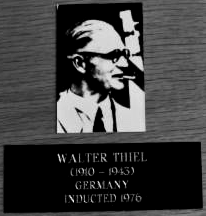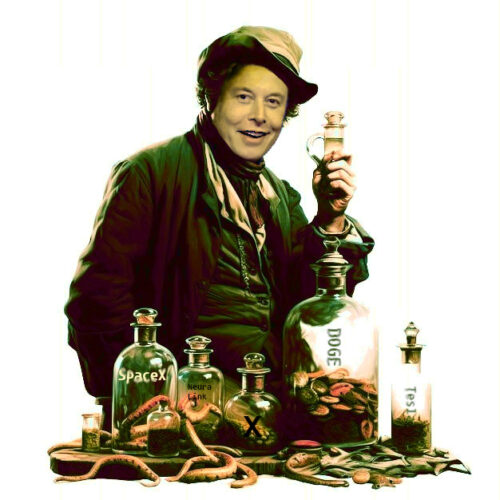“Sprich auch du” from “Von Schwelle zu Schwelle” (1955) by Paul Celan
Sprich auch du,
sprich als letzter,
sag deinen Spruch.Sprich –
Doch scheide das Nein nicht vom Ja.
Gib deinem Spruch auch den Sinn:
gib ihm den Schatten.Gib ihm Schatten genug,
gib ihm so viel,
als du um dich verteilt weißt zwischen
Mittnacht und Mittag und Mittnacht.Blicke umher:
sieh, wie’s lebendig wird rings –
Beim Tode! Lebendig!
Wahr spricht, wer Schatten spricht.Nun aber schrumpft der Ort, wo du stehst:
Wohin jetzt, Schattenentblößter, wohin?
Steige. Taste empor.
Dünner wirst du, unkenntlicher, feiner!
Feiner: ein Faden,
an dem er herab will, der Stern:
um unten zu schwimmen, unten,
wo er sich schimmern sieht: in der Dünung
wandernder Worte.
The falling star as wiser, the shadows stripped away, is powerful stuff.
Truth doesn’t ascend toward false fluffy consolation but descends into the pressure of crisp difficult depths. The speaker becomes “Schattenentblößter” (shadow-stripped) with shadows given to speech, growing “thinner, more unrecognizable, finer,” an emaciation to the core thread by which truth descends.
This is notably different from simply taking the “red pill,” like Keanu Reeves’s character in “The Matrix,” who sees a binary win or lose decision, framed as daunting truth over contented ignorance.
Celan is saying the opposite, like how a swimmer learns best how to survive by thriving in the struggle to hold breath under the unsurvivable water, contented to struggle beyond always floating and getting pulled out. Celan’s death by drowning in the Seine in April 1970 is generally considered suicide by scholars and biographers, but it wasn’t definitively proven. Instead we should say his star descended, his shadows were stripped away, as the shadowy criminals of the Holocaust were being given plum jobs and Swiss bank accounts to profit from the Cold war.
Klaus Barbie was on the CIA payroll, Wernher von Braun was becoming a folk hero, and Operation Paperclip was quietly integrating war criminals into American institutions. The star descends while the evil of Nazi offspring in the shadows, such as Peter Thiel and Elon Musk, rises.
Celan’s verses aren’t just pointing out the struggle to survive a descent underwater, but also highlighting capacity to exist under tension between breath and breathlessness, between survival and surrender. There is a liminal space where the body under water learns something essential about extreme endurance that can’t be taught on the surface.
The revolutionary instruction “Doch scheide das Nein nicht vom Ja” (But do not separate the No from the Yes) creates dialectic tension preventing clear resolution – maintaining contradiction without a false synthesis. The balance is the answer.
After certain experiences, simple affirmation or denial becomes impossible. Truth exists only in recognition of the tension itself. A bicycle can only be ridden by acknowledging a fall to either side is failure. Truth requires constant balance and rebalancing, but the contemporary world of extractive corrupt consumption seems designed to make such balancing impossible.
I don’t know what’s worse today looking back at the 1950s, the Nazis running American anti-Communist ferver or the Nazis running Communism. Seems the problem for everyone involved was treating Nazis as useful idiots, yet losing control to the extremists. President Truman fired General McArthur for being “almost criminally out of touch with reality“, while today this seems almost like a prerequisite for a Trump appointment. The poem’s insistence on speaking “als letzter” (as the last) takes on this additional weight for us to contemplate. Perhaps Celan sensed even then that he was among the last who would insist on uncompromising testimony before the convenient and cruel “rise” of intentional forgetting began.

Celan’s refusal to separate No from Yes requires a kind of patient dwelling that “almost criminally out of touch” extractive systems can’t tolerate. The efficiency addicts demand quick resolution, clear sides, simple answers that can be monetized and undermine society without accountability.
The Department of Government Efficiency was created as an obvious nod directly to forgetting Nazis, as their descendants bathed in shadows that enabled rapid and unjust seizure of power.
The red pill mythology is actually selling addiction to false efficiency. It promises one swallow of hard truth let’s you operate from a position of superiority. Celan’s warning “don’t separate the No from the Yes” refuses this comfort entirely as fraud. The Department of Government Efficiency represents a bogus reduction of complex moral and social questions to technical problems “solved” rather than lived with. It’s all a lie because there’s no actual moment of awakening that frees you from the necessary ongoing tension between affirmation and denial.
The efficiency mindset attempts to reframe sophisticated moral questions into simple optimization problems. It’s the same logic that could absorb war criminals by focusing on their technical skills, totally ignoring their huge shadows. The promise is always the same: complex human problems can be solved through snake oil rather than lived with through ongoing moral attention.

There are some clumsy translations of the poem to English floating around, such as this:




